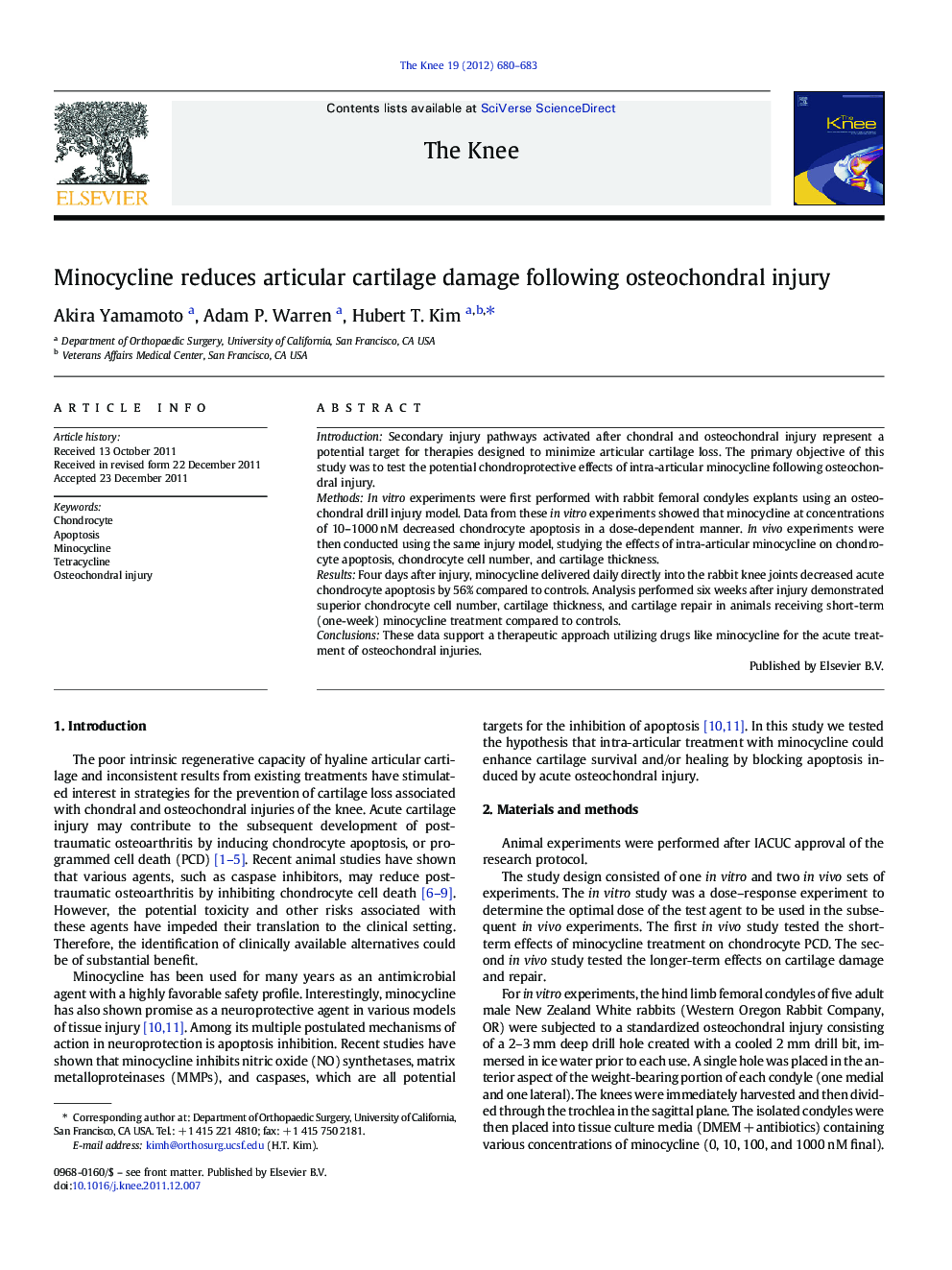| Article ID | Journal | Published Year | Pages | File Type |
|---|---|---|---|---|
| 4077910 | The Knee | 2012 | 4 Pages |
IntroductionSecondary injury pathways activated after chondral and osteochondral injury represent a potential target for therapies designed to minimize articular cartilage loss. The primary objective of this study was to test the potential chondroprotective effects of intra-articular minocycline following osteochondral injury.MethodsIn vitro experiments were first performed with rabbit femoral condyles explants using an osteochondral drill injury model. Data from these in vitro experiments showed that minocycline at concentrations of 10–1000 nM decreased chondrocyte apoptosis in a dose-dependent manner. In vivo experiments were then conducted using the same injury model, studying the effects of intra-articular minocycline on chondrocyte apoptosis, chondrocyte cell number, and cartilage thickness.ResultsFour days after injury, minocycline delivered daily directly into the rabbit knee joints decreased acute chondrocyte apoptosis by 56% compared to controls. Analysis performed six weeks after injury demonstrated superior chondrocyte cell number, cartilage thickness, and cartilage repair in animals receiving short-term (one-week) minocycline treatment compared to controls.ConclusionsThese data support a therapeutic approach utilizing drugs like minocycline for the acute treatment of osteochondral injuries.
